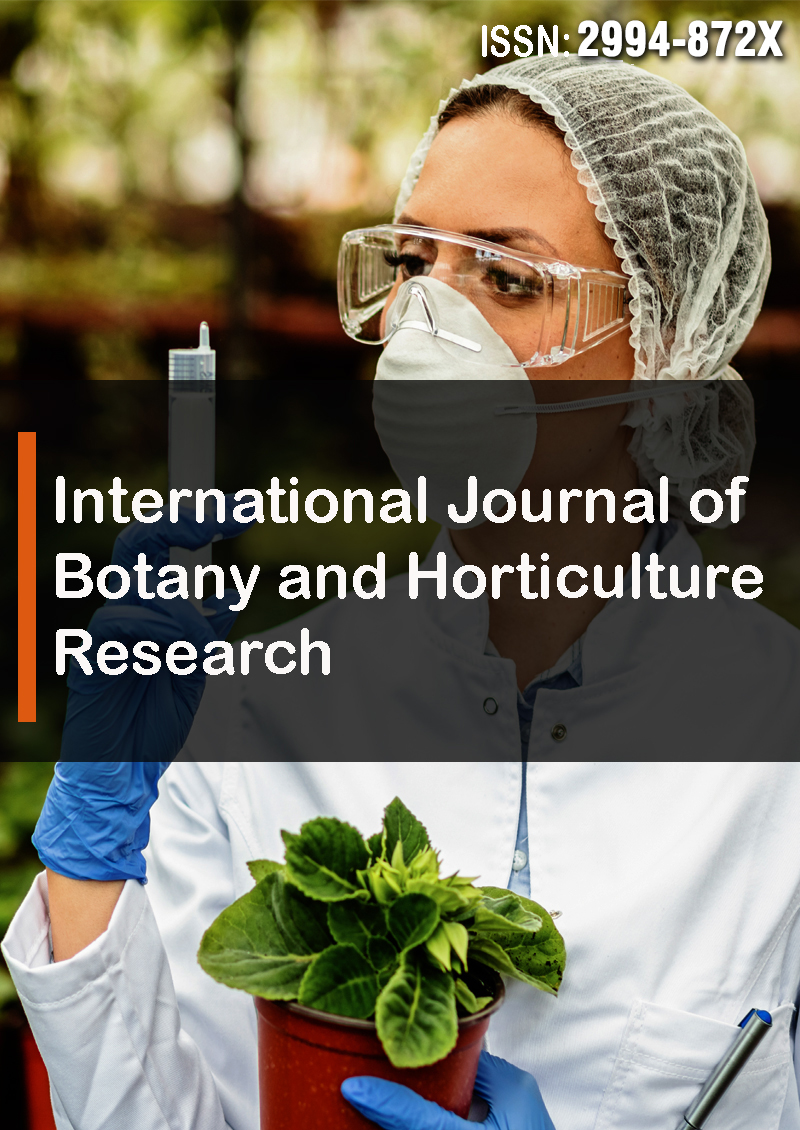Aims and Scope
Journal DOI: 10.33140/IJBHR
International Journal of Botany and Horticulture Research is a platform for researchers to spread/share their research in short, high-quality, videos. Each video that is published by the journal provides an opportunity for authors to personally discuss their latest work in more detail; highlighting its importance to the field, placing it in context, and discussing future implications.
The main aim of the journal is to provide brief, accurate, high-quality surgical video clips that are approved by international experts through the peer-review process. The journal aims to help the viewers or readers of the journal, gain a comprehensive understanding of the research.
The scope of the journal is to cover the presentation of new information by publishing original research from all areas of the clinical and basic sciences including clinical medicine, clinical trials, experimental research, epidemiology, preventive medicine, translational medicine and rural health in the form of short/explanatory/animated videos. The journal also aims to publish video case presentations/procedure PPTs.
The journal publishes all types of videos ensuring comprehensive coverage of the latest developments across all fields of clinical and medical research.
Videos produced and published by the journal, reveal the key details of research enabling authors to present their work in their own words, and explore the implications of key developments across clinical, medical and global health.
Submit manuscript at https://www.opastpublishers.com/journal/international-journal-of-botany-and-horticulture-research/manuscript-submission or send as an e-mail attachment to the Editorial Office at info@opastpublishers.com
Some of the subject areas that the journal focuses on include:
Botany: plant biology, ecology, evolution, physiology, biodiversity, systematics, development, genetics, palaeobotany, structure and function, land plants, algae, fungi, lichen, cyanobacteria, Responses of plants to heavy metals and pollutants, plant/water interactions (salinity, drought, flooding), responses of plants to radiations ranging from UV-B to infrared, Plant/atmosphere relations (ozone, CO2, temperature), Global change impacts on plant ecophysiology, biotic interactions involving environmental factors, biodiversity, morphology, physiology, molecular biology, ecology, biotechnology, ethnobotany and other botanically related aspects, etc.
Horticulture: organic production, genetics, genomics, breeding, and biotechnology, physiology, biochemistry, and molecular biology, plant interactions with pests and pathogens, effects of abiotic stresses, adaptation of horticultural species to climate change pre- and post-harvest quality, nutritional and phytochemical composition, product processing, storage, and transport, propagation and seed production, urban horticulture, smallholder production systems, precision horticulture and technological innovation, modelling plant growth and productivity, greenhouses and plant factories with artificial light, reducing energy input in the production chain, photovoltaic applications on horticultural crops, horticultural biodiversity, waste management, economics and marketing, perception of horticulture, outreach, education, etc.
Crop Science: crop sciences, crop genetics, breeding, agronomy, crop physiology, germplasm resources, grain chemistry, grain storage and processing, crop management practices, crop biotechnology, crop physiology and metabolism, crop ecology, crop production and management, crop breeding/ crop rotation/ crop farming, nutritionally enhanced and genetically modified crops, biotechnological approaches for crop improvement, weed biology and pest management and control, sustainable use of crops, crop diversity, fertilization and pollen behaviour, post-harvest management, viticulture, entomology, turfgrass science, etc.
Plant Research: plant cytology and histology, plant anatomy and morphology, systematics, taxonomy and classification, plant physiology and ecophysiology, plant genetics, molecular biology and biochemistry, ecology and biogeography of plants, phenomenology, evolutionary biology, plant phylogeny and palaeobotany, plant diversity and conservation biology, experimental and applied plant science: new methods in experimental botany; biology of medicinal plants; ethnobotany; biological effects of active substances from plants; phytomedicine; new plant products, active substances and secondary metabolites; plant drug development; agricultural plants; plants derived food; horticultural plants; phytopathology; plant biotechnology; interactions between plants and other organisms; the importance of plants in the environment; the use of plants in biological control; crop protection and pesticides, plant physiology, including plant biochemistry, functional biotechnology, computational and synthetic plant biology, growth and development, photosynthesis and respiration, transport and translocation, plant-microbe interactions, biotic and abiotic stress, genomics, proteomics, biochemistry (including enzymology), physiology, cell biology, development, genetics, functional plant breeding, systems biology and the interaction of plants with the environment, etc.



